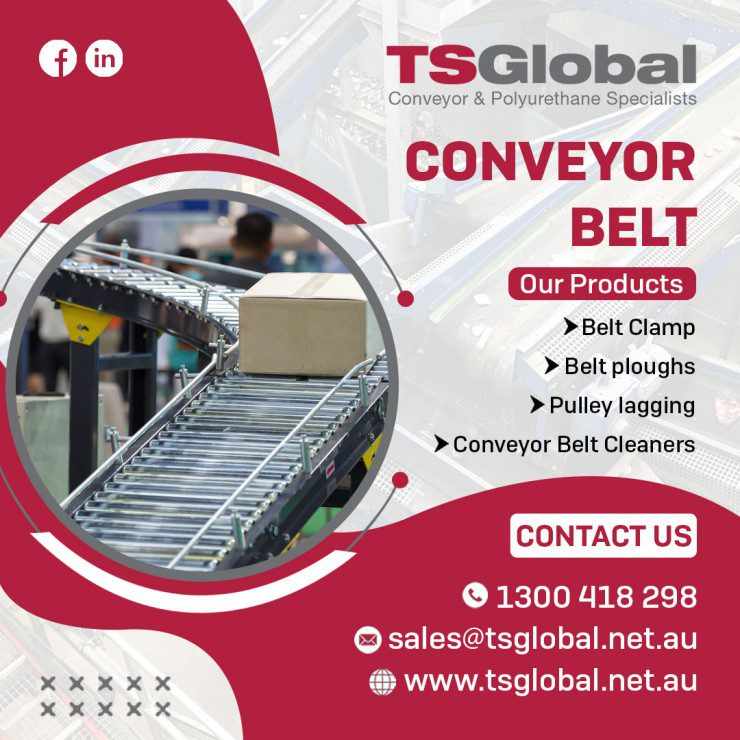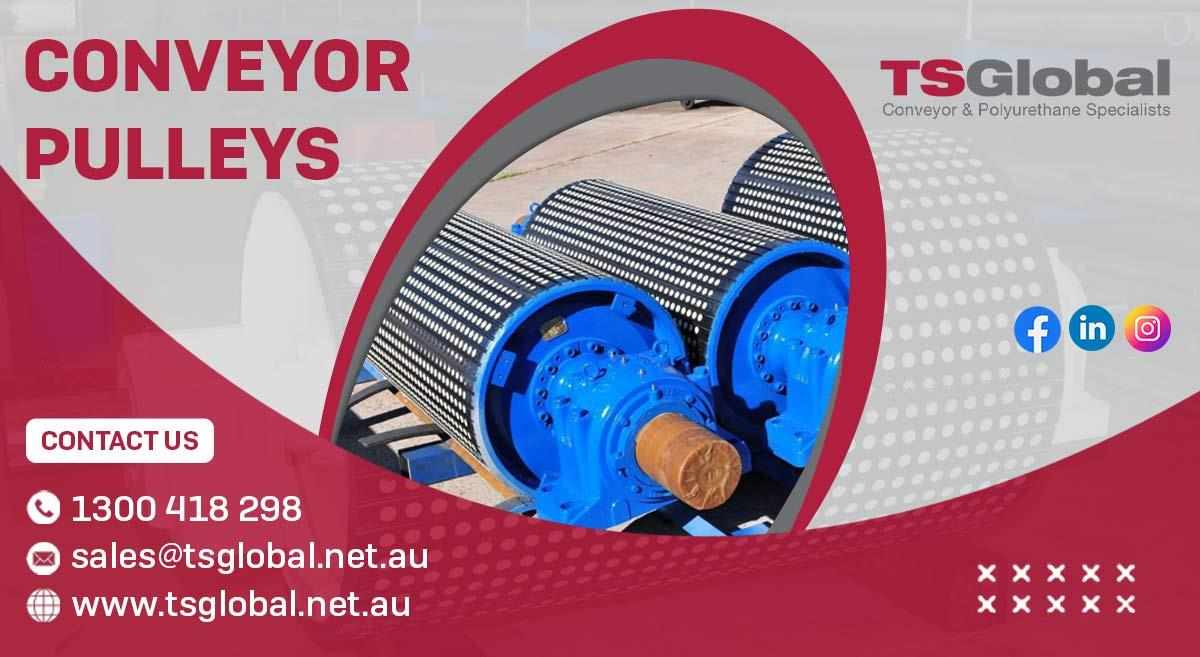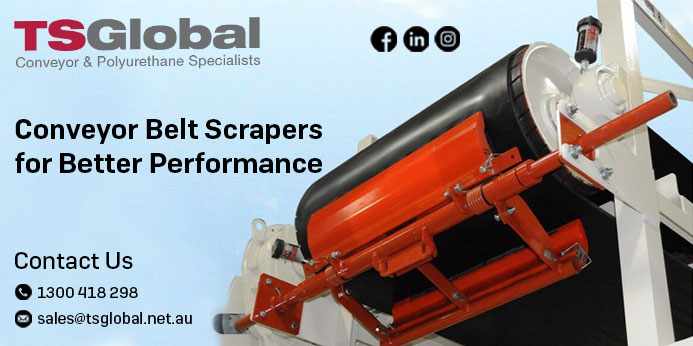
Boost Efficiency & Safety with Conveyor Belt Scraper Solutions
In today's fast-paced industrial landscape, the efficient movement of goods and materials is crucial for productivity and profitability. Among the many mechanical systems that support these operations, conveyor belts stand out as one of the most widely used and versatile solutions. Whether it’s in manufacturing, mining, agriculture, or packaging, conveyor belts play a key role in streamlining workflows, reducing manual labor, and ensuring that materials are transported smoothly across various distances. However, the efficiency of a conveyor system relies not only on the belt itself but also on maintenance tools such as conveyor belt cleaners. These cleaners are essential for ensuring smooth operation, prolonging the life of the conveyor, and reducing downtime.
Understanding Conveyor Belts: The Backbone of Material Handling
A conveyor belt is a flexible band, often made from rubber, plastic, or metal, that transports materials across a series of rollers, pulleys, or a stationary framework. Its main function is to move products or raw materials from one point to another, often within an industrial plant, warehouse, or assembly line.
There are different types of conveyor belts, each designed to serve specific industries and purposes:
Flat Belt Conveyors: These are the most common type, used for transporting lightweight items across short distances.
Modular Belt Conveyors: Built from interlocking pieces, these belts are used for complex or heavy-duty tasks, often in the food industry.
Cleated Belt Conveyors: These belts have raised sections, or "cleats," which help in moving items that require elevation changes.
Incline/Decline Belt Conveyors: Designed to move goods up or down, these conveyors often come with added grip to prevent items from slipping.
No matter the type, conveyor belts significantly improve efficiency by automating what would otherwise be labor-intensive processes. For instance, in mining, conveyor belts are used to transport heavy minerals, while in manufacturing, they move parts from one assembly point to the next. They are vital in distribution centers, where they enable quick and accurate sorting and shipping of products.
The Importance of Conveyor Belt Cleaners
While conveyor belts themselves are crucial, their smooth and efficient operation depends heavily on the effectiveness of conveyor belt cleaners. These cleaners are designed to remove material that adheres to the belt as it runs, preventing buildup, blockages, and unnecessary wear.
There are several reasons why conveyor belt cleaners are critical for industrial systems:
Preventing Material Carryback: Material that sticks to the belt after unloading is called carryback. If left unchecked, this carryback can accumulate along the belt and in other components, leading to inefficiencies, blockages, and even system failures. Conveyor belt cleaners are designed to scrape off these residual materials, ensuring the belt remains clean.
Reducing Maintenance Costs: Excessive material buildup on conveyor belts can cause friction and damage over time. This not only leads to increased wear and tear on the belt but also affects the overall system's components, like rollers and pulleys. By using belt cleaners, companies can prevent unnecessary damage and extend the life of their conveyor systems, ultimately reducing maintenance costs.
Minimizing Downtime: Every time a conveyor system is stopped for maintenance or repairs, production grinds to a halt. Conveyor belt cleaners play a crucial role in reducing unplanned downtime by keeping the belts clean and operational. A well-maintained belt requires fewer stops for cleaning or repairs, allowing for smoother, uninterrupted operation.
Improving Workplace Safety: A clean conveyor belt reduces the risk of accidents. Material buildup can lead to belt misalignment, slippage, or even sudden stoppages, all of which can pose serious safety hazards for workers. Conveyor belt cleaners help maintain optimal belt performance, reducing the likelihood of accidents and contributing to a safer work environment.
Types of Conveyor Belt Cleaners
There are several types of conveyor belt cleaners available, each designed to suit different types of belts and industrial applications:
Primary Cleaners: These cleaners are positioned at the head pulley, the point where the belt leaves the pulley. Their main purpose is to remove the bulk of the material that sticks to the belt. They usually come equipped with a blade that scrapes off the carryback effectively.
Secondary Cleaners: Often placed behind the primary cleaner, secondary cleaners ensure that any material missed by the first cleaner is removed. They provide an added layer of cleaning to ensure maximum belt cleanliness.
Tertiary Cleaners: In highly specialized or demanding applications, tertiary cleaners may be installed as an additional safeguard. These are typically used in situations where even small amounts of residue can cause issues, such as in the food or pharmaceutical industries.
Brush Cleaners: Instead of blades, these cleaners use rotating brushes to sweep off material from the belt. Brush cleaners are ideal for delicate or sticky materials that might not be efficiently removed by a traditional blade cleaner.
Air Knife Cleaners: These use high-pressure air to blow off loose material from the belt. This type of cleaner is commonly used in industries where using mechanical blades might damage the belt or the product being transported.
Best Practices for Conveyor Belt Maintenance and Cleaning
To get the most out of a conveyor belt system, regular maintenance and proper cleaning are essential. Some best practices include:
Routine Inspections: Regularly inspecting the conveyor belt and its components can help identify potential problems before they escalate. This includes checking for wear and tear, alignment issues, and buildup of material.
Proper Cleaner Installation: Ensuring that conveyor belt cleaners are properly installed is crucial for their effectiveness. A poorly installed cleaner may not fully contact the belt, leading to incomplete cleaning.
Timely Replacements: Cleaners, like other parts of the conveyor system, will eventually wear out and require replacement. Keeping a schedule for replacing cleaners ensures that they continue to function optimally.
Conclusion
The synergy between conveyor belts and conveyor belt cleaners is critical for maintaining industrial efficiency, productivity, and safety. While conveyor belts play an indispensable role in material handling across various industries, their performance can be compromised if they are not properly maintained. Conveyor belt cleaners provide an essential service by preventing material buildup, reducing maintenance costs, and minimizing operational downtime.
In modern industries where efficiency is paramount, investing in quality conveyor systems and their maintenance is an investment in the company's long-term success.

















.jpeg)


Write a comment ...